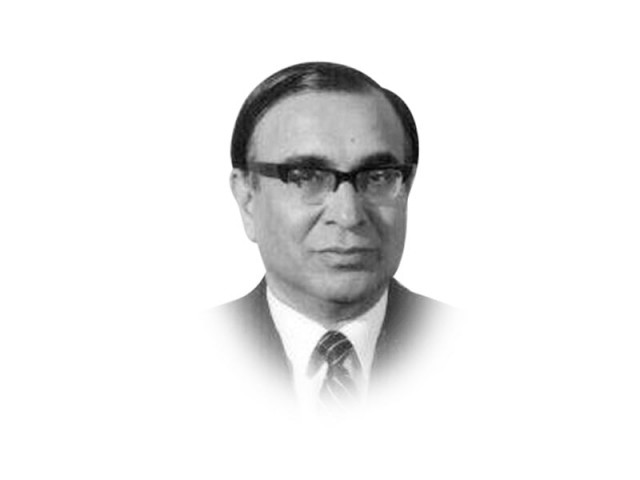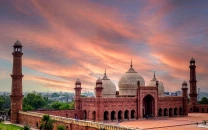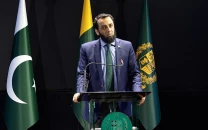Pakistan in the Great Game
The present government has to restore national purpose and pride or make room for others who may be able to do it.

There is, however, another angle from which the evolving situation can be viewed, perhaps with less trepidation. The starting point has to be that the drawdown of American forces does not mean the abandonment of Washington’s vital interests in the huge swath of land that includes Central Asia, Afghanistan and South Asia. Secondly, notwithstanding the current strains in the Pakistan-US relationship, Pakistan will, in the months and years ahead, remain a major concern of American policymakers. In the article mentioned above, I had said that Pakistan ran like a subtext in President Obama’s latest address. There has been ample reiteration of this fact for the simple reason that the new American strategy to safeguard its interests in the region at a much lower cost in blood and treasure would remain dependent upon Islamabad remaining a loyal and compliant ally. So the present delicate situation is more a consequence of Pakistan’s failure to reach an accord with the US on assisting Washington to pursue its political and economic agenda in this part of the world without sacrificing Pakistan’s core interests.
After a frustrating decade in Afghanistan, the US is virtually giving up on nation-building and returning to counterterrorism. The fundamental interests that will be pursued with undiminished zeal would be the survival of a regime, which may include elements from the Taliban that accept decisive American influence. A new factor for this power assertion is the need to control the mining of copper, iron, lithium and other minerals and the denial of the same to others, especially China. This is additional to the unique geopolitical location of the country, which would be defended by an effective American military force stationed in it under a treaty, and an Afghan army totally disproportionate to the country’s economic resources at present. Washington also will not forego the leverage that its military presence in Afghanistan gave it to shape the policies of the Central Asian states rich in fossil fuels and rare Earth elements. Then there is the question of keeping Iran surrounded by states that remain sensitive to American policy. Above all, there is the overriding question of fitting Pakistan into a new South Asian paradigm. The most substantive challenge to American dominance of the global economy has come from Asia. It is of utmost importance to the United States that India continues to remain within the orbit of its influence and that the India-Pakistan contention does not detract from it.
Washington would also not give up the pressure for the transformation of Pakistani state and society, though it has only a limited interest in its historical context or its present complexity. A more robust Pakistani government enjoying mass support would have succeeded in making the United States appreciate its own dilemma. A new report by the Centre for a New American Security describes Pakistan as a “differentiated” polity, requiring a differentiated American policy. WikiLeaks alone will explain why American analysts reach this disturbing conclusion. The present government in Pakistan has to restore national purpose and pride or make room for others who may be able to do it.
Published in The Express Tribune, July 11th, 2011.





1675249047-0/image-(18)1675249047-0-208x130.webp)













COMMENTS
Comments are moderated and generally will be posted if they are on-topic and not abusive.
For more information, please see our Comments FAQ